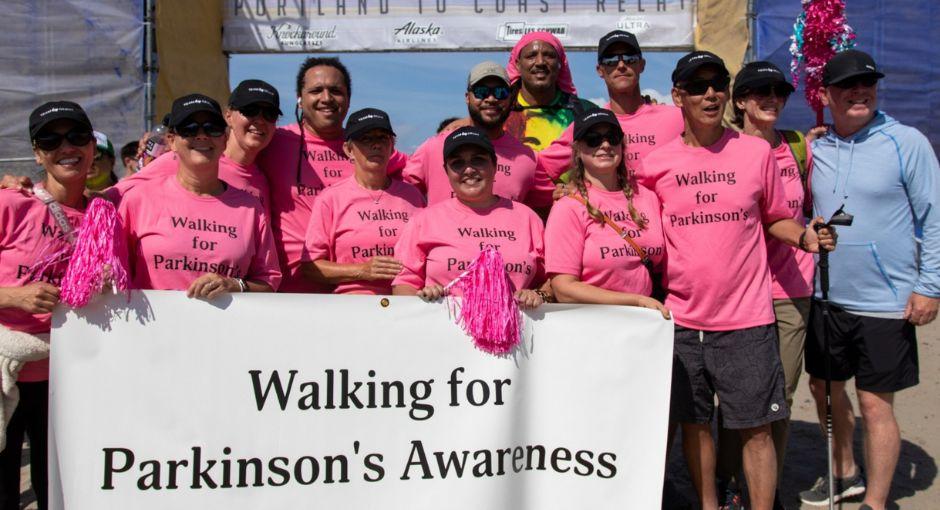8 Questions You’ve Always Wanted to Ask a Physical Therapist

Did you know that physical therapy can help delay the progression of Parkinson’s disease (PD) symptoms? Jenny Wilhelm, PT, DPT, NCS, is a physical therapist at Oregon Health and Science University, a Parkinson’s Foundation Center of Excellence. We asked Jenny the most frequently asked questions about Parkinson’s disease and physical therapy.
What is the difference between physical therapy and exercise?
Exercise is a tool that physical therapists use to treat people with Parkinson's disease. Exercise can take several different forms such as aerobics, strengthening, stretching and balance.
Physical therapy can help you design an exercise program that will benefit you personally. In addition to the movement symptoms addressed by exercise, physical therapy can also improve your non-movement symptoms such as pain, low blood pressure and bladder or bowel problems. We teach people with Parkinson’s life strategies so they can stay safe at home, and we also train care partners to help support their loved one with PD.
How can physical therapy benefit people with Parkinson’s disease?
I would give my hats off to occupational therapists first, for teaching people with PD how to adapt their behavior and how to move. Physical therapists are next in line in helping with activities of daily living: getting on and off the toilet, sitting down and standing up from the couch and getting in and out of bed.
Physical therapy can help people with Parkinson's throughout the stages of the disease. Early on, we educate clients about the types of exercises that might be most effective for them. Later in PD, the physical therapist can help problem solve and make modifications to address new or changing symptoms. We help people with Parkinson’s adapt to everyday life scenarios in a way that is easier, safer and more enjoyable.
Is seeing a physical therapist who specializes in movement disorders more effective than seeing a general physical therapist?
In a perfect world, all people with Parkinson’s disease would be seen at a Center of Excellence by an interdisciplinary team. Research has shown that people with PD do better if they see someone who knows a lot about Parkinson’s.
For people who live in rural areas, however, it may be difficult to find a physical therapist who specializes in Parkinson’s. If you do not have access to a PD specialist, try to see someone who at least knows neurological physical therapy. Or you could try virtually seeing a physical therapist who specializes in Parkinson’s. Even if you only check in with this person a few times per year, their guidance will help with your overall symptom management.
Why did you become a physical therapist?
The story of how I became a physical therapist is a little unique. I've always been interested in research. I started doing research at the University of Nebraska when I was 16. Then I grew into basic neuroscience research but as I was doing that, I really missed people. I ended up in physical therapy for myself for a low back injury, and it seemed like a good fit.
I got into physical therapy school, and my combined interest in physical therapy and neuroscience led me to specialize in neurological conditions.
Can you share a feel-good story about helping people with PD?
Last year, I supported a van full of people who were doing a 130-mile relay race to raise awareness for Parkinson’s. I met with half a dozen people with Parkinson's (most of whom I had never met before) and assessed them on their symptoms and ability to walk two legs of a relay, to help them finish this race successfully.
During the race itself, we encountered some obstacles due to various PD symptoms. I had to get out of the van and massage someone’s foot at 2 a.m. because her dystonia was so bad that she couldn't walk. I had to help someone with gait training because they were pushing themselves and walking fast. I had to help hydrate someone who had low blood pressure. Despite these setbacks, however, everyone was determined to complete the race.
The important thing is that we were able to successfully support this team and get them across the finish line. I think the experience was empowering for this small group of individuals. The hope is that their success can inspire other people to step up to the challenge and raise awareness for Parkinson’s.
What do you do to manage the stress of your job?
I'm a part of a huge team, which is super helpful. In clinic, I work primarily with people with Parkinson's, but I see patients who are living with all neurological diseases. With PD, I have such a functional team that it makes a huge difference in being able to treat patients effectively. When there are issues, I can lean on other people to help me through problems that I might be having.
I am also a big fan of vitamin N: nature. My family and I do a lot of outdoor activities — being outside is my biggest stress management tool.
Is it ever too late to start physical therapy?
It is never too late to start physical therapy. People with PD may want to see a physical therapist for numerous issues throughout the course of the disease. I see a lot of people who have back pain or shoulder pain. They may not be coming to me directly because of Parkinson's, but I can help address their pain issues so they can continue to exercise.
Ideally, you would begin seeing a physical therapist shortly after diagnosis. But even if you are in the late stages of PD, there are still ways that physical therapists can help you move better and improve your quality of life.
If you have not yet seen a physical therapist, talk to your movement disorders specialist or neurologist to get a referral.
What is one takeaway the PD community should know about physical therapy?
I have never seen someone living with Parkinson's with an issue that physical therapy can't address. No matter what stage of PD you are currently in, there is a role for physical therapy to make your life a little bit easier.
For help finding a physical therapist near you, contact our Helpline at 1-800-4PD-INFO (1-800-473-4636).
Related Blog Posts

Disease-Modifying Research Pipeline Holds Possibility for Parkinson’s

